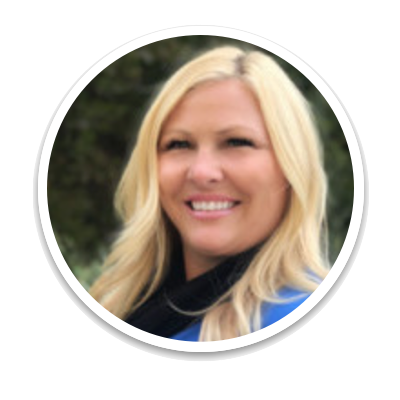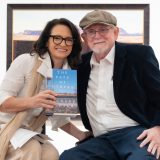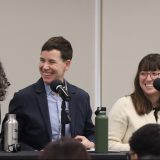Career Corner Meet Alumna Alana Routé, Clinic Operations Manager at Scripps Health
June 22, 2020

Erin Berthon, MA Career Advisor, Wilkinson College of Arts, Humanities, and Social Sciences, at Chapman University
I recently sat down to talk with Dr. Alana Routé (’07) about her career journey. During our conversation, I recognized the importance of sharing her story and words of encouragement with Wilkinson students. It is also important to emphasize, as a career advisor, all the different options you have available to you with a social science degree; everything you learn will set you up to achieve your career goals. Besides offering inspiration, alumni like Alana are valuable resources for networking and as a resource for exploring career options.
Dr. Alana Routé ‘07 is an experienced Psychologist, Operations Manager, and Business Owner. Dr. Routé has held multiple positions such as; CEO (Chief Executive Officer) and COO ( Chief Operations Officer) Clinical Program Director in both Mental Health and Drug Treatment Programs. Currently, she works as a Clinic Operations Manager at Scripps Health. While working on her Bachelor’s degree at Chapman, she studied Psychology, Sociology, and Criminal Justice.
Understanding what drives modern society is why we study social sciences. Even though Alana’s focus was psychology, her pursuing sociology with criminal justice helped gain the confidence and skills she needed for her career today. This included the ability to analyze critically, communicate persuasively, and work collaboratively and creatively.
Our alumni are making a difference as agents in social change in their careers.
Read our conversation below.
Q & A with Alana Routé
Erin Berthon: When did you know that you wanted to do forensic psychology? Did Chapman guide you on that decision? Perhaps it was one of the majors, classes, or an experience that helped guide your decision.
Alana Routé: I recall being in a Social Psychology Class with Professor Benn Johnston and discussing the video “Blue Eyes, Brown Eyes” by Jane Elliott. We had such a thought-provoking discussion pertaining to race, stigma, and perception. It was during that class that a light went off and I knew that I wanted to major in psychology down the line. Benn Johnston had a unique style of teaching and engaging students.
EB: You mentioned Benn Johnston, as maybe a mentor for you during college. Do you think students seeking mentorship is something Chapman should encourage?
AR: I believe that having a mentor is extremely important. Whether they teach a subject you are interested in or, have studied an area of interest. it’s great to know you have someone that you can bounce ideas on. It is that individual that helps you to be your creative self.
EB: Can you touch on the process of getting to where you are today? Any advice that you have that helped you during your journey?
AR: During my Bachelor’s program at Chapman, I was working in the Emergency Department at Centinela Hospital. I continued that job until the time I started my doctoral program. The one thing I can stress the most is don’t worry if you don’t land your dream job right after your program. Your 1st “real” job, usually isn’t your dream job anyway. If you are able to do an internship or have impeccable mentors, as I did, they will help you to navigate the next steps.
EB: Now being out of Chapman for 13 years and seeing how things have changed for this generation, do you have any advice or words of encouragement?
AR: As COVID-19 has come and changed the way we do things for the foreseeable future, please continue to stay informed! Your education is an investment for your future. Use any downtime you have researching what program and school will work best for you now. Don’t be afraid to reach out to professors, career advisors, mentors, etc. for help. If I know anything, it’s this: Having an amazing network has helped me in both programs and even after when it came to making plans for my career goals.
EB: We hear all the time from parents, “what can my student do with a social science degree?” There are so many myths on these majors in the social sciences, can you share your thoughts on how criminal justice and sociology helped you along the way?
AR: I decided to also major in Sociology with an emphasis in criminal justice after looking at the courses for different programs. The Social Sciences allow you to concentrate in several different areas. There were classes in all three areas, (Psychology, Criminal Justice & Sociology) that I wanted to take. It also opened the door for me to further my education without feeling limited to do something I wasn’t 100% vested in. A Social Science major also gives you the skills of reading, writing, and critical thinking, which helped me in Forensic Science and to obtain several certificates. I was able to take all the knowledge from my Social Science Degree (in which I did have to write a thesis) and use it during my doctoral program. Having the exposure of writing a thesis, helped me to complete my dissertation (2nd in my class). I had the foundation and knew what was being asked of me. Others were not so lucky.
EB: Any words of encouragement or advice that you can share with Wilkinson students?
AR: In summary, I would like to reiterate that the mentors and guidance I received during my time at Chapman, definitely shaped my direction (that was a little all over the place). The one thing that I thought was so cool was that the counselors and mentors did not try to discourage you from your dreams and goals. Instead, they took the time with students to help them meet and exceed their career goals. Thank you, Chapman, for bringing my dreams to fruition!!!



